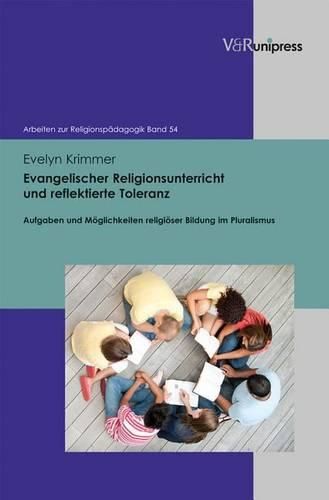Readings Newsletter
Become a Readings Member to make your shopping experience even easier.
Sign in or sign up for free!
You’re not far away from qualifying for FREE standard shipping within Australia
You’ve qualified for FREE standard shipping within Australia
The cart is loading…






Reaching far beyond the field of education, the importance of tolerance for almost every context of our society cannot be overestimated. Quite often, however, it is religion which is publicly perceived as a source of intolerant behaviour, while the possibility of discovering strong reasons for firm tolerance within the religious traditions themselves has not yet been considered thoroughly enough. Assuming a positive correlation between religion and tolerance, this study suggests steps towards a higher capability of tolerance within our pluralistic society and, as a consequence of identifying the roots of tolerance within religion itself, outlines possible strategies of acting considering the future development of Protestant religious education in Germany. In contrast to abstract ways of being tolerant, only reflected tolerance based on faith and aware of one’s own point of view seems capable of entering into dialogic engagement with different beliefs.
$9.00 standard shipping within Australia
FREE standard shipping within Australia for orders over $100.00
Express & International shipping calculated at checkout
Reaching far beyond the field of education, the importance of tolerance for almost every context of our society cannot be overestimated. Quite often, however, it is religion which is publicly perceived as a source of intolerant behaviour, while the possibility of discovering strong reasons for firm tolerance within the religious traditions themselves has not yet been considered thoroughly enough. Assuming a positive correlation between religion and tolerance, this study suggests steps towards a higher capability of tolerance within our pluralistic society and, as a consequence of identifying the roots of tolerance within religion itself, outlines possible strategies of acting considering the future development of Protestant religious education in Germany. In contrast to abstract ways of being tolerant, only reflected tolerance based on faith and aware of one’s own point of view seems capable of entering into dialogic engagement with different beliefs.